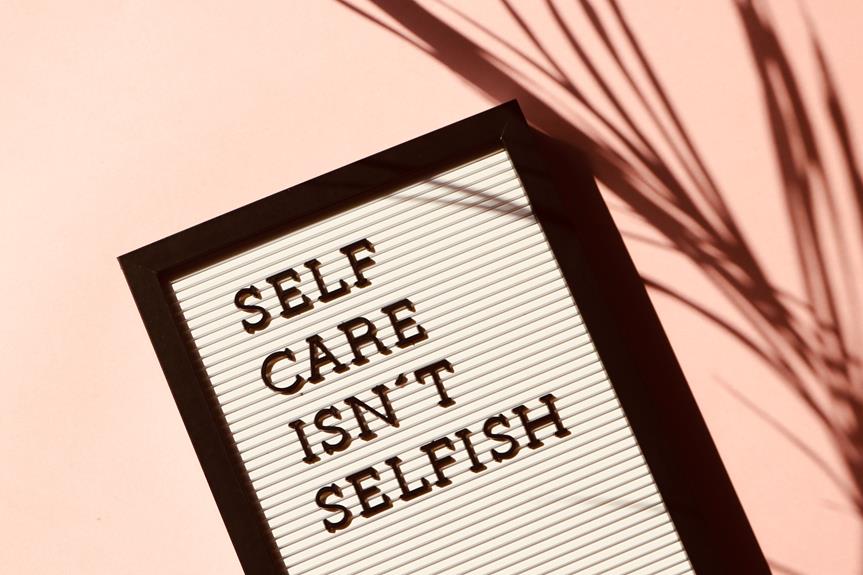You might think that journaling is just for angsty teenagers, but it's time to reconsider. Journaling has the power to boost your mental health in four incredible ways. By putting pen to paper, you can experience an emotional release, reduce stress, and gain a deeper understanding of yourself. Not only that, but it can also enhance your problem-solving skills and decision-making abilities. So, if you're ready to take control of your mental well-being, grab a journal and get writing.
Key Takeaways
- Journaling provides a sense of control and empowerment in expressing thoughts and emotions freely.
- Writing in a journal can provide relief and lightness by releasing thoughts and feelings from the mind.
- Journaling promotes self-awareness and reflection, helping to identify patterns and triggers that influence emotions and behaviors.
- Engaging in problem-solving through journaling enhances the ability to make sound decisions and improves problem-solving skills.
Emotional Release and Stress Reduction
One way journaling can boost your mental health is by allowing you to release and reduce stress through the act of writing. When you write in your journal, you have complete control over what you choose to write about. This sense of control can be empowering, as it allows you to express your thoughts and emotions freely without judgment or interference. By putting your thoughts and feelings onto paper, you are able to release them from your mind, giving you a sense of relief and lightness. Writing in your journal can also help you gain clarity and perspective on stressful situations, as you can analyze and reflect on them objectively. Through journaling, you can take charge of your emotions and actively work towards reducing stress in your life.
Increased Self-Awareness and Reflection
As you continue journaling, you will experience an increased sense of self-awareness and the ability to reflect on your thoughts and emotions. This heightened self-awareness allows you to gain a deeper understanding of yourself, your values, and your beliefs. You will become more attuned to your own needs and desires, enabling you to make more informed decisions and take control of your life. Reflection becomes a powerful tool as you review past entries, identifying patterns and triggers that influence your emotions and behaviors. By recognizing these patterns, you can proactively address any negative patterns or habits and cultivate positive ones. Additionally, journaling helps you develop a more objective perspective on your experiences, enabling you to gain clarity and find solutions to challenges. Overall, journaling empowers you to become the master of your own thoughts and emotions.
Improved Problem-Solving and Decision Making
To improve problem-solving and decision making, journaling allows you to analyze your past experiences and gain valuable insights. By documenting your thoughts and emotions, you can review them objectively and identify patterns or recurring issues. This gives you the opportunity to reflect on how you have approached problems in the past and evaluate the effectiveness of your decision-making process. Through journaling, you can also explore different perspectives and consider alternative solutions to challenges you may face. By writing down your thoughts, you can organize your ideas and clarify your thinking, allowing you to make more informed decisions. Additionally, journaling provides a space for brainstorming and problem-solving, enabling you to generate creative solutions to complex problems. Taking control of your thoughts and actively engaging in problem-solving through journaling can greatly enhance your ability to make sound decisions.
Enhanced Emotional Well-being and Resilience
By exploring your emotions and building resilience, journaling can significantly enhance your emotional well-being. Journaling provides a safe space for you to reflect on and process your emotions, allowing you to gain a deeper understanding of yourself and your feelings. This self-awareness can help you better regulate your emotions and respond to challenging situations with more control and clarity. Additionally, journaling can help you develop resilience by encouraging you to identify and challenge negative thought patterns, cultivate a positive mindset, and find strength in difficult times. Through the practice of journaling, you can build emotional resilience and develop coping strategies that will support your overall well-being. So grab a pen and start journaling to take control of your emotions and enhance your emotional well-being today.
- Gain a deeper understanding of your emotions through self-reflection
- Develop resilience by challenging negative thought patterns and cultivating a positive mindset
